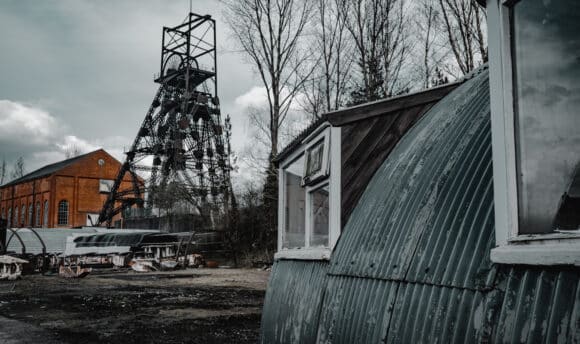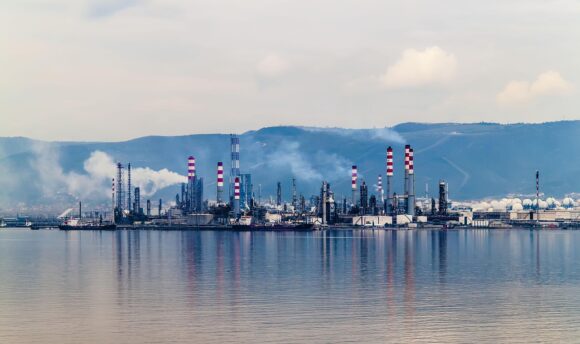Coal kills. Pollution from European coal power plants is responsible for an estimated 22,900 premature deaths every year, and health insurers are playing a surprising role in backing these projects.
One country, Poland, is responsible for more than a quarter of this frightening total, and is planning to expand its coal industry with 10GW of new power plants and new open-pit mines containing more than 3 billion tonnes of lignite, the dirtiest form of coal.
This expansion is being supported by some of the continent’s biggest health and life insurers. A new briefing published by the Insure Our Future campaign reveals that European insurers have signed at least 21 contracts underwriting existing coal operations and new developments in Poland since 2013.
Allianz, the world’s second biggest insurer, leads a consortium underwriting the biggest coal power plant under construction in Europe, an 1,800MW expansion at Opole due to start operating in 2019. The expansion is estimated to cause 62 premature deaths and 4,135 asthma attacks every year. The consortium includes Generali and Munich Re’s subsidiary Ergo Hestia. These three insurers plus Talanx’s subsidiary Tuir Warta are the biggest underwriters of coal in Poland.
German and Italian insurers’ support for Polish coal is paradoxical because their populations suffer the greatest health impacts outside Poland itself. Polish coal pollution is estimated to cause 5,830 premature deaths across 10 European countries each year, including 620 in Germany and 430 in Italy.
In supporting Polish coal these insurers are also betting against the Paris Agreement and backing an industry which is fueling runaway climate change. Coal is the single biggest source of CO2 emissions and the UN has called for an end to new coal projects worldwide and an accelerated phase-out of existing plants as key steps to achieving international climate goals.
Extreme weather events are increasing as the global temperature rises. After record losses of $135 billion from natural disasters in 2017, it should be a matter of self-interest for insurers to mitigate climate change risks.
Dirty Business: Insurance companies supporting the growth of Polish coal reveals that Allianz and Generali are not only providing the insurance cover which allows new coal projects to be built and existing ones to continue operating. They also invest in Polish coal companies alongside other European insurers Nationale Nederlanden, Aviva, Aegon and AXA.
These six European insurers held more than €1.3 billion of investments in Polish coal companies at the end of 2017 through their Polish pension fund subsidiaries. Not only are these companies heavily exposed to coal, most are among the most aggressive coal developers in Europe and should be at the top of every divestment list.
These investments are questionable on business grounds. The Polish coal industry made losses of €1.05 billion in 2015, and closing Polish coal plants early in line with the Paris Agreement could avoid losses of €2.7 billion.
Poland’s coal industry, and the companies which support it, will come under close scrutiny when the country hosts the UN’s annual climate change conference in Katowice in December 2018. Insurance companies which fail to end their supports to coal will face high reputational risks.
On the contrary, supporting a rapid phase-out of coal would provide huge benefits for public health, support the international commitment to keep climate change as close to 1.5C as possible, and make sound business sense.
A growing number of insurers are indeed turning against coal, and 15 have divested an estimated €16 billion in equities and bonds. AXA, Zurich and SCOR have gone further with restrictions on underwriting and Swiss Re is due to announce a similar policy in coming months.
A recent editorial in the Financial Times greeted this trend as “a welcome and logical development,” adding “it makes little sense to adopt a policy of disinvestment unless underwriting practices also change”.

But many insurers have taken no or very limited action on coal. They may have divested to protect their own portfolios from climate risks, but are not prepared to touch their core business, underwriting.
While they delay action, coal continues to kill thousands every year and we are running out of time to avoid climate chaos. It is urgent that laggards like Allianz, Generali and Munich Re join front runners like AXA which recently set bold limits on underwriting and divestment criteria based on the Global Coal Exit List.
As AXA CEO Thomas Buberl said in December 2017: “Unsustainable business will become un-investable and uninsurable business.” It’s time to make this happen.



